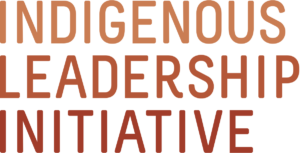Reconciliation Happens on the Land
By Valérie Courtois
September 29, 2021
Walking along the wonderstrand in Akami−Uapishkᵘ−KakKasuak−Mealy Mountains National Park Reserve, Labrador. Photo: Innu Nation and Alex Andrew.
On September 30, Canada is marking the first National Day for Truth and Reconciliation. Thanks to the courage and leadership of Phyllis Webstad, a survivor of residential schools, many of us already recognize this as Orange Shirt Day. Now the entire country will be called upon to honour survivors and reckon with the abject cruelty of the so-called residential school system.
True reconciliation requires an honest conversation about the past and present. But reconciliation must also be rooted in the land. It calls for respecting the centrality of the land in healing Indigenous communities and restoring Indigenous Nationhood.
One of the worst impacts of colonialism was to remove Indigenous Peoples from our landscapes—the places where we find our strength, our identity, and our place in this world. Taking us away from our lands—through residential school and other forced removals—has been profoundly traumatic.
But the reverse is also true: reconnecting with the land heals us.
Healthy lands sustain healthy individuals and healthy communities. That’s why the ILI works to support Indigenous land use plans, Indigenous Protected and Conserved Areas, and Indigenous Guardians programs.
On the land in the Thaidene Nëné Indigenous Protected Area, NWT. Photo credit: Pat Kane.
These tools help Nations reassert our rights and responsibilities on the land. And in the process, the land helps members of our communities recover from trauma and addiction, feel pride in their culture, and become the next generation of leaders.
The Honourable Ethel Blondin-Andrew, a Senior Leader of the ILI, says Indigenous Peoples are at our best when we are on the land. “I'm a residential school survivor,” she said, “And I've been coast to coast to coast talking with survivors and intergenerational survivors of the horrors of the residential school system.”
“We're working to make sure these atrocities are known,” she explained. “But we're also working to create a better life for all of our people. We are working to make healthy, beautiful futures for our children despite what was done to us.”
Guardians are helping build that future. And that’s why having more guardians in the landscape is one of the most effective ways to help heal the effects of colonialism.
There are already over 70 existing Guardians programs, and dozens of proposed IPCAs, but many more Nations are eager to launch their own stewardship initiatives. The federal government’s recent investment of $340 million in Indigenous-led conservation over five years is a good start, but Nations need permanent funding to take care of the land and honour our responsibilities.
This is how we foster healing and reconciliation: on the land. Bev Sellars, the renowned author and ILI Senior Leaders, said, “When I was writing my book about my time spent at the residential school, I cried enough tears to fill a swimming pool. But it allowed me to grow, to understand myself, and to be able to help others. And that is what Guardians are doing now in our communities, our territories, and on the land and waters. We raise our hands to the work Guardians do for the love of our territories and love of our people.”
For mental health and wellness support, please click here or call
the National Residential School Crisis Line: 1-866-925-4419



